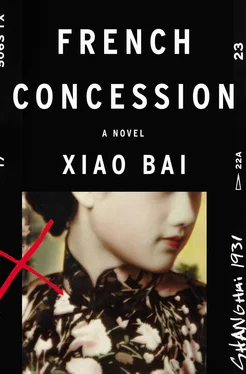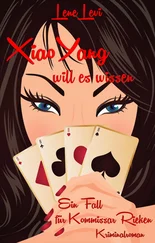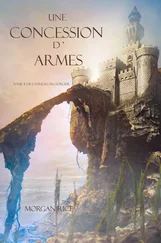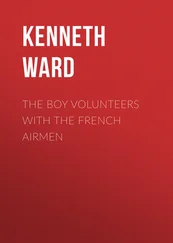And then they stopped being polite. One man punched him on the back of the head. He recognized the man waiting inside as Sergeant Ch’eng of the North Gate police. He knew old Pock-faced Ch’eng. Like Li, Ch’eng was a Green Gang man from a wealthy Shanghai family. Unlike Li, the sergeant was a big shot. Li tried playing the gang card, mentioning his capo, but they kept kicking and punching him. He was forced to tell Ch’eng everything he knew. Except that he didn’t know anything. He certainly did not know ahead of time that a man would be killed or he would have told the police — he was a good citizen. Ow! All right, he wasn’t a good citizen, but he still wouldn’t have had the nerve to keep that secret. He’d gone to the Kin Lee Yuen Wharf because an anonymous caller had told him at seven in the morning that something big was going to happen there. But what was he doing in the newsroom so early? Li said he hadn’t gone home in the first place — he had spent the night playing mahjong. And why would he believe a single anonymous caller? What made the other reporters believe him? Here Li hesitated, and his interrogators pinned him down by the shoulders. Maybe it was the other man’s tone of voice, which had sounded deadly serious, like cold air emanating from the phone receiver. But then how had he convinced the others? Oh, that was a piece of cake — he got another punch in the head, apparently Sergeant Ch’eng’s men didn’t like it if you sounded too casual — aren’t reporters ready to believe anything in case there’s a scoop in it for them?
Sergeant Ch’eng let him go. He did warn Li that if it weren’t for his capo, and if it weren’t for the fact that Li had been clever enough to sell the manifesto to other newspapers instead of printing it in the Arsène Lupin , he would be spending the next couple of years in jail at Lunghwa Garrison Command. The media had had a field day covering the Kin Lee Yuen shooting, and many newspapers had printed a manifesto addressed to Shanghai residents by the assassins, without the slightest regard for the authority of the Shanghai Party-Government-Army Press Censorship Bureau, which was housed in the East Asia Hotel.
The teahouse began to fill with people, and he sat at a window facing north. Hsueh sat opposite him, while his camera lay on the small table.
“Where were you that day? I spent all night looking for you. I even came here to catch you in the morning, but you weren’t anywhere to be found!”
Li Pao-i was telling the truth now. He had not told the truth to Sergeant Ch’eng.
Hsueh seemed to regret missing out on the scoop. Of course, Li then had simply sold the tip to someone else. Hsueh flipped through the photos again. Several of them had already appeared in the newspaper, but there were a few others that Hsueh hadn’t seen. These were the ones by the China Times , and the photographer had developed a set for Li to keep.
Hsueh’s favorite subject of photography was the crime scene. Here, the gunman’s corpse took up the right-hand diagonal half of one photo, lying beneath the spare tire that hung at the back of the car. There were black pools of liquid and a gun on the ground. Shun Pao identified it as the semiautomatic Mauser C96 rifle, while other papers used its nickname, the box cannon gun, to make it sound scarier. Another photo was a close-up of a cop’s face. Beyond the rim of his cap and his raised tin whistle, which was so near the lens it looked like a wilted black flower, you could see the door swung open and the body on the backseat. The corner of a black coat peeked out beneath the door. It belonged to the woman, the victim’s wife. One photo captured her vacant expression as she lay there, propping herself up with her hand and struggling to lift her head, with vomit on the corner of her mouth. Li had seen another photo in Millard’s Review , an old photo from the newspaper announcements of Mr. Ts’ao’s wedding. Word was that Ts’ao’s death had had something to do with his wife, who was now wanted by the police department.
“I saw this woman on the ship. I’ve got a photo of her that’s much better than this one. That guy did a shoddy job. His camera won’t do, and his technique is terrible,” Hsueh said critically. In the chaos, the China Times ’s photographer had clearly been unable to keep his subject in focus.
“Show it to me.”
“No, I don’t think I will.” Hsueh sounded a little distracted. “You’d have to pay me. Fifty yuan .”
Li promptly lost interest. The assassination was old news. A whole week had passed, the Concession newspapers had devoted pages and pages to the story, and now everyone was getting tired of it. Only Hsueh was still enthusiastic about it.
“So, this woman. Was she really a Communist?” Hsueh said. “How did they find you anyway?”
“They stopped me on the road and asked me to get into a car with them.” Li was lying again. He had been walking down the street when a woman had slapped him in the face and started hurling abuse at him. Then someone had stopped to break up the fight and shoved him into a car. He had been kidnapped. But he didn’t want to admit that — it was a little embarrassing.
“What did they look like?”
“What do you think, they all had red hair and green eyes? Haven’t you seen a Communist before? Only a few years ago they were on every street corner.”
Just thinking about that man made his skin creep. The man had been forty or so. He always had his top hat on, even indoors. His eyes pierced through you from beneath the rim of his hat, and he smoked one cigarette after another. Li wouldn’t dare mess with him — he could see that this man was much more dangerous than the police. He didn’t have to ask what you were thinking because he knew. And the more polite he was, the more terrified Li became, as if he could be shot for one wrong word. The man put the gun on the table.
He warned Li not to go getting any ideas, not to even think about tipping the police off quietly. Li was to comply fully with his demands. At nine in the morning he was to show up at the Kin Lee Yuen Wharf, watch carefully, and write a good story. The next time we visit, we’ll bring you something, he said. But instead of visiting, they merely sent him a brown paper envelope containing a manifesto announcing the execution of the counterrevolutionary element Ts’ao Chen-wu, signed by the Special Operations Unit of the Chinese Communist Party in Shanghai and Their Comrades of People’s Strength. A bullet lay in the envelope, proof that his correspondent meant business. He could have sent two bullets, but would two bullets say anything that one didn’t?
He dared not simply print the manifesto in the brown paper envelope, so he pulled an old trick and sold it to several of the more reputable newspapers, reasoning that he had more than complied with his visitor’s request. Of course he made a tidy profit — that was his job. He even managed to sell the tip to a foreign newspaper. The Communists couldn’t object to getting some international attention. The wealthy Chinese in the Concession only read foreign newspapers, paid for monthly by check. They all had servants who would retrieve the paper from the letterbox and bring it to the living room in the morning. If they came after him, he could reasonably claim that having the Concession’s foreign newspapers print their manifesto was the equivalent of loosening a screw on the Press Censorship Bureau’s gates. The next day, it would be in all the Chinese papers. Wasn’t that exactly what these men wanted?
He didn’t tell Hsueh all this. It was time they forgot about this story. It was stale news by now, and he was quite sure his visitors would leave him alone. Apart from Hsueh, no one else had come over to ask him about it all morning — and Hsueh was clearly more interested in the woman than the story. When he left, he asked Li Pao-i to give him the photos of this woman, even though he thought little of the China Times ’s cameraman. Sure you can have them, it’s old news. Have them all if you want. I’ve already made more than eighty yuan off this story. Care to know the woman’s name?
Читать дальше












